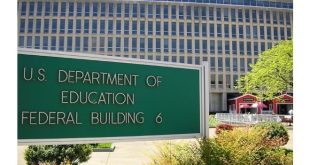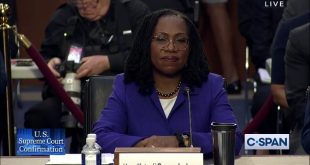With the next round of Democratic presidential candidate debates upon us, we will surely hear more about government activism to fix racial inequalities.
Inequality is real and needs attention.
According to the Urban Institute, average white household wealth in 2016 was $171,000 compared with average black household wealth of $17,409.
Sen. Cory Booker wants government to make deposits into savings accounts for low-income children to the tune of up to $50,000 each.
Sen. Kamala Harris proposes $100 billion in government subsidies for black homeownership.
These kinds of proposals may win some black votes, but should they? Will they really make blacks and the nation better off?
Government anti-poverty spending is not exactly a novel idea. We’ve been doing it since the 1960s, totaling, by some estimates, over $20 trillion since then. Has it achieved anything?
Changes in the poverty rate are barely discernible. And the wealth gap has just gotten bigger.
Per the same Urban Institute data, the wealth gap between white and nonwhite households was $45,188 in 1963, $92,045 in 1983 and $153,591 in 2016.
If a history of spending massive sums of taxpayer funds without results is not enough to discourage this approach, how about asking where the money will come from?
This fiscal year, the federal government will spend $4.5 trillion, $3.5 of which will be financed by tax revenue, leaving a trillion-dollar deficit to finance through borrowing.
According to the latest “Long Term Budget Outlook” from the Congressional Budget Office, “Large budget deficits over the next 30 years are projected to drive federal debt held by the public to unprecedented levels — from 78 percent of gross domestic product (GDP) in 2019 to 144 percent by 2049.”
And, CBO continues, “The prospect for such high and rising debt poses substantial risks for the nation …”
Sometimes it might be reasonable to take a risky plunge into debt, if the investments being made with the funds raised have high potential return and payoff.
But we’re talking here about plunging the nation deeper into debt to spend money in ways that have always failed. Does this make sense to anyone other than politicians who might get in office as a result of buying votes?
There is a way out of the darkness, but it takes principles and courage.
Low-income America isn’t suffering because of insufficient government dependence but because of insufficient independence — ownership. And here we can use government policy to make things better.
Per the Urban Institute, the average savings in retirement accounts in 2016 was $157,884 in white households and $25,212 in black households. Black families, according to the report, “have less access to retirement savings vehicles and lower participation when they have access.”
The headline in a recent Wall Street Journal column reads, “Counter Inequality With Private Social Security Accounts.”
The authors, Jeff Yass and Stephen Moore, propose Own America Accounts, private retirement accounts to where workers could shift 10 percent of their paycheck from Social Security.
The average annual return on Social Security over the last 40 years has been about 1 percent per year, according to Yass and Moore, and stocks returned 6 percent per year.
With Own America Accounts, an average American could have retired in 2016 with between $1 and 2 million in savings over a 40- to 45-year working life, per Yass and Moore.
Furthermore, Social Security is yet another dysfunctional government program. Social Security trustees project that in just 16 years, there will be insufficient funds to meets obligations. So a bad deal will get even worse when our politicians try to “save the system” by raising taxes, raising the retirement age or cutting benefits.
At minimum, make Own America Accounts available to low-income Americans, and help them build wealth through ownership rather than more government dependence.
COPYRIGHT 2019 STAR PARKER
DISTRIBUTED BY CREATORS.COM
 Star Parker is the founder and president of the Center for Urban Renewal and Education. Contact her at www.urbancure.org.
Star Parker is the founder and president of the Center for Urban Renewal and Education. Contact her at www.urbancure.org.
 Black Community News News and Commentary for Christians
Black Community News News and Commentary for Christians




Star,
Ever since I read your book “Uncle Sam’s Plantation” I have been a supporter. You say “help them build wealth through ownership rather than more government dependence” and I agree with that. What I would suggest is helping anyone save in a retirement plan, but who will still depend on the ‘man’ for their housing is not giving them enough towards their independence. So, why not give welfare recipients the incentives and ability to build equity in their own home AND in a retirement account. The result could be when they retire, they have the home to live in and a retirement account for Independence.
One must remember that the Urban Institute is a liberal organization, according to Wikipedia out of 50 organizations UI ranked #11 in liberalism just after NAACP and just before PETA, plus the fact that its employees donated about 99% to the democrat party.
I would like to know what items were used to identify the household wealth in 2016. Was it home owners versus those living in government subsidized housing?, was it full time employees versus part time?
Based on an annual wage/salary for an individual I cannot believe the the disparity of $171,000 to $17,409 is actual.
My first day in college level statistics the instructor opened whit the statement “figures lie and liars figure”.
There are many ways to manipulate the data to support your statement.